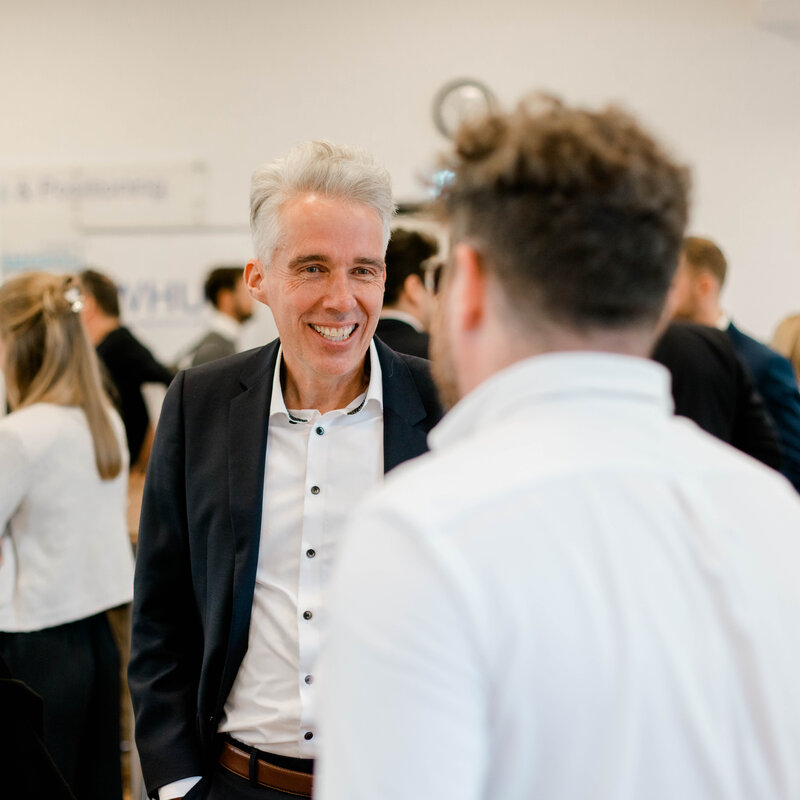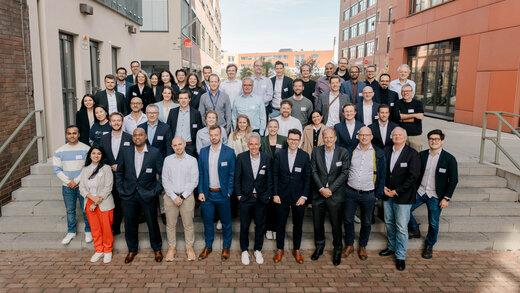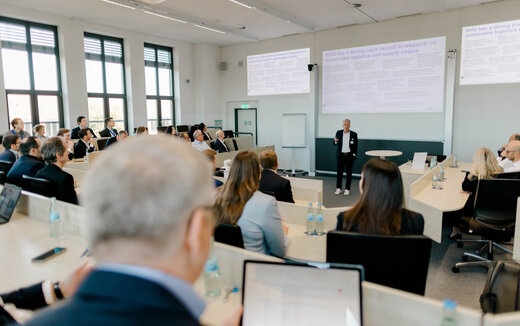Renowned industry experts discuss concrete steps for a carbon-free future for freight transport by 2050
How can one find a balance between competitiveness and sustainability in the field of freight transport? What innovative approaches to planning and control already exist, and how are they being put into practice today? And how can alternative transport concepts be implemented to comply with regulatory requirements? These are just some of the questions that high-profile experts from around the world addressed at the first ever WHU Campus for Sustainable Transportation conference in October. The one-day event, held on the Düsseldorf campus of WHU – Otto Beisheim School of Management, brought together renowned decision-makers, including business leaders, scientists, and entrepreneurs, to rethink the future of road and air freight transport.
“If we act consistently and quickly now, we can still achieve the net-zero goals the EU wants to achieve for freight transport by 2050,” said Professor Stefan Spinler, Chair of Logistics Management at WHU and co-organizer of the conference. “Unfortunately, there is often a wide gap between the emergence of an opportunity and its scalability. That has made decisive, collaborative action on the parts of the corporate world and the field of science so important right now.”
According to experts, there are five key actions that will allow for the decarbonization of road and air freight transport by 2050:
- increasing use of and investment in proven low-carbon technology (e.g., electric trucks or sustainable aviation fuel)
- accelerating the transition phase in the expansion of charging, electricity, and fuel infrastructure
- implementing efficiency gains for the short-tem, for example, through increased truck utilization, optimized route planning, eco-driving training on lower fuel consumption, or reduced aircraft turnaround times
- securing processes and delivery times while implementing costly measures in companies, reflecting that sustainable transformation must be worthwhile over the long term
- the immediate use of real-time data to cushion the effects of regulatory, geopolitical, or technological uncertainties
The experts agreed that science has a crucial supporting role to play in implementing these points through analysis and modeling. The results of the WHU Campus for Sustainable Transportation and further planned steps were subsequently summarized in the working paper “Priorities for industry-academia collaboration.”
“It was important to us to deliver truly tangible results, and, according to the feedback from the participating executives, we have achieved this goal,” said Professor Spinler. “It is encouraging to see the promising solutions that science and industry can develop together.”
Guest speakers and panel participants included Lars Redeligx, CEO of Düsseldorf Airport; Fabian Düx, Director of EU Surface Transportation Operations at Amazon; Dr. Andreas Mündel, SVP Strategy and Operations Programs at DHL Group; and Dr. Matthias Winkenbach, Director of Research at the MIT Center for Transportation and Logistics. In addition to specialist presentations and discussion panels, there were also opportunities for networking.
“Priorities for industry-academia collaboration” can be downloaded here.



